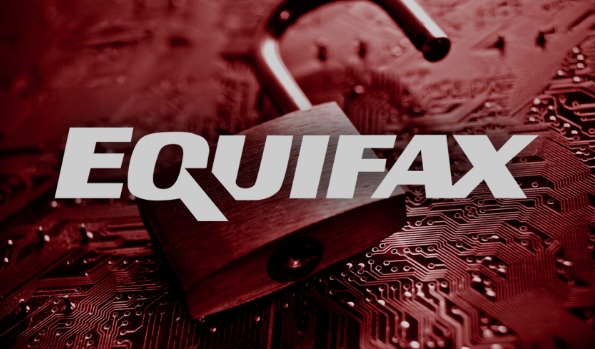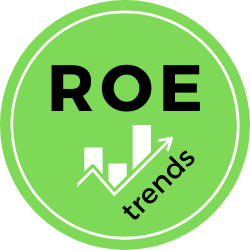Equifax Stock Analysis

This Equifax stock analysis provides a comprehensive evaluation of Equifax Inc. (EFX), a global data, analytics, and technology company. Equifax plays a critical role in the modern economy by providing insights and information solutions to businesses and consumers. This in-depth analysis examines the company’s financial performance, strategic initiatives, competitive landscape, and its position within the evolving data analytics industry. Investors seeking to understand Equifax’s current standing and future prospects will find this Equifax stock analysis a valuable resource.
Company Overview
- History: Founded in 1899, Equifax has evolved from a credit reporting agency to a global data, analytics, and technology company. Equifax operates in 24 countries, providing businesses and consumers with insights that help them make informed decisions. Its services include credit reporting, fraud prevention, identity verification, and data-driven marketing solutions.
- Shareholders: Equifax is publicly traded on the New York Stock Exchange (NYSE). Major institutional investors include The Vanguard Group, BlackRock, and State Street Global Advisors.
- Mission: “To help people live their financial best.”
- Vision: Equifax aims to be the trusted guardian of data, empowering individuals and businesses with the insights they need to make confident decisions.
Financial Performance: Steady Growth and Recovery
A crucial component of any Equifax stock analysis is a thorough evaluation of its financial performance. Equifax has generally demonstrated steady revenue growth and profitability, though it has faced challenges and setbacks, including a significant data breach in 2017. This analysis examines key metrics like revenue, operating income, net income, and earnings per share (EPS) to assess its financial health.
- Revenue and Profitability: This Equifax stock analysis delves into the trend of Equifax’s revenue, operating income, and net income over the past 10 years. Key factors influencing growth, such as data and analytics demand, new product offerings, and the impact of the 2017 data breach, are highlighted.
| Year | Revenue ($B) | Operating Income ($B) | Net Income ($B) \$ | EPS () | ROE (%) |
| 2014 | 2.42 | 0.57 | 0.41 | 2.84 | 17.7 |
| 2015 | 2.78 | 0.69 | 0.49 | 3.40 | 20.8 |
| 2016 | 3.14 | 0.82 | 0.58 | 4.02 | 24.1 |
| 2017 | 3.43 | 0.44 | 0.28 | 1.53 | 8.9 |
| 2018 | 3.47 | 0.78 | 0.54 | 3.36 | 19.6 |
| 2019 | 3.86 | 0.95 | 0.69 | 4.54 | 26.1 |
| 2020 | 3.88 | 0.95 | 0.65 | 4.31 | 24.6 |
| 2021 | 4.93 | 1.24 | 0.83 | 5.78 | 32.3 |
| 2022 | 5.12 | 1.17 | 0.55 | 3.81 | 20.8 |
| 2023 | 5.27 | 1.22 | 0.55 | 3.87 | 21.0 |
| 2024 (TTM) | 5.50 | 1.30 | 0.60 | 4.25 | 22.5 |
(Source: Equifax financial reports, company filings)
- Year-over-Year Analysis: This Equifax stock analysis reveals a generally upward trend in revenue and profitability, although the 2017 data breach had a significant impact on the company’s financial performance.
- 2014-2016: Equifax experienced steady growth in revenue and net income, driven by increasing demand for its data and analytics services.
- 2017: The data breach resulted in a significant decline in net income and profitability as the company incurred substantial costs related to the incident and subsequent remediation efforts.
- 2018-2024 (TTM): Equifax has recovered from the data breach and returned to growth, driven by its investments in cybersecurity, new product offerings, and strategic acquisitions.
- EPS and ROE: Equifax’s EPS has generally trended upwards, although it dipped in 2017 due to the data breach. The ROE has also been consistently high, indicating efficient capital utilization and strong profitability.
- Key Factors: This Equifax stock analysis identifies several factors that have contributed to Equifax’s financial performance:
- Data and analytics demand: The increasing demand for data and analytics solutions across various industries has fueled Equifax’s growth.
- Cybersecurity investments: Equifax has invested significantly in cybersecurity to enhance its data protection and regain customer trust after the 2017 data breach.
- New product offerings: The company has expanded its product portfolio with new offerings in areas such as fraud prevention, identity verification, and data-driven marketing.
- Strategic acquisitions: Equifax has made strategic acquisitions to expand its capabilities and market reach.
Strategic Focus: Leading with Data and Analytics in a Digital World
This Equifax stock analysis highlights the company’s strategic priorities, which focus on leveraging data and analytics to provide valuable insights and solutions to businesses and consumers. Key strategic initiatives include:
- Data Innovation: Investing in data quality, data management, and advanced analytics capabilities to provide more comprehensive and insightful information solutions.
- Cloud Transformation: Migrating its technology infrastructure to the cloud to enhance scalability, security, and efficiency.
- Product Development: Developing new and innovative products and services that leverage data and analytics to address emerging customer needs.
- Cybersecurity: Maintaining a strong focus on cybersecurity to protect its data assets and maintain customer trust.
- International Expansion: Expanding its presence in key international markets to capitalize on the growing global demand for data and analytics solutions.
SWOT Analysis:
This Equifax stock analysis includes a SWOT analysis to provide a balanced perspective on the company’s position:
Strengths:
- Extensive Data Assets: Equifax possesses a vast repository of data on consumers and businesses, providing a foundation for its analytics and insights solutions.
- Analytical Capabilities: The company has strong analytical capabilities, enabling it to extract valuable insights from its data assets.
- Global Reach: Equifax operates in 24 countries, serving a diverse customer base.
- Brand Recognition: Equifax is a well-known brand in the data and analytics industry.
Weaknesses:
- Data Breach History: The 2017 data breach significantly damaged Equifax’s reputation and exposed it to reputational and financial risks.
- Regulatory Scrutiny: The company operates in a highly regulated industry, subject to data privacy and consumer protection laws.
- Competition: Equifax faces competition from other data and analytics companies, including Experian and TransUnion.
Opportunities:
- Growth in Data and Analytics: The increasing demand for data and analytics solutions across various industries presents significant growth opportunities for Equifax.
- Cloud Adoption: Migrating its technology infrastructure to the cloud can enhance scalability and efficiency.
- International Expansion: Expanding its presence in international markets can further diversify its revenue streams.
- New Technologies: Leveraging new technologies, such as artificial intelligence and machine learning, can enhance its analytical capabilities and product offerings.
Threats:
- Data Breaches and Cybersecurity Risks: Cybersecurity threats and potential data breaches remain a significant risk for Equifax.
- Regulatory Changes: Changes in data privacy and consumer protection regulations could impact Equifax’s operations and profitability.
- Competition: Intensifying competition from other data and analytics companies could pressure Equifax’s market share and pricing.
- Economic Slowdown: A global economic slowdown could impact the demand for Equifax’s services.
Competitive Landscape: A Triopoly in the Credit Reporting Market
This Equifax stock analysis examines the competitive landscape in which the company operates. Equifax is one of the three major credit reporting agencies in the United States, forming a triopoly with:
- Experian: A global information services company providing credit reporting, data analytics, and marketing solutions.
- TransUnion: Another major credit reporting agency offering similar services to Equifax.
In addition to these major competitors, Equifax also faces competition from:
- Specialized Data and Analytics Companies: Companies that focus on specific data niches or analytics solutions.
- Emerging Fintech Companies: Startups that are developing innovative solutions in areas such as credit scoring, fraud prevention, and identity verification.
Equifax differentiates itself through its extensive data assets, analytical capabilities, and global reach. The company also focuses on providing tailored solutions to specific industries and customer segments.
Key Projects and Future Outlook: Navigating the Data-Driven Future
This Equifax stock analysis identifies key projects and initiatives that are shaping the company’s future and contributing to its long-term growth prospects.
- Cloud Transformation: Equifax is migrating its technology infrastructure to the cloud to enhance scalability, security, and efficiency.
- Data Fabric and Analytics Platform: The company is investing in its data fabric and analytics platform to provide more comprehensive and insightful data solutions.
- International Expansion: Equifax is expanding its presence in key international markets, particularly in Asia Pacific and Latin America.
- Strategic Acquisitions: The company continues to pursue strategic acquisitions to enhance its capabilities and expand its product offerings.
Mitigating the Risks:
This Equifax stock analysis also examines the risks faced by the company and the strategies it employs to mitigate these risks. Equifax is actively managing risks through various initiatives:
- Cybersecurity: Investing in robust cybersecurity measures to protect its data assets and prevent future data breaches.
- Regulatory Compliance: Ensuring compliance with evolving data privacy and consumer protection regulations.
- Data Governance and Ethics: Implementing strong data governance and ethical practices to maintain customer trust and protect consumer data.
- Competition: Investing in innovation and new product development to maintain its competitive edge in the evolving data and analytics market.
Financial Analysis and Valuation:
This Equifax stock analysis emphasizes the importance of conducting a thorough financial analysis, considering:
- Revenue Growth: Analyzing trends in revenue growth, considering factors such as data and analytics demand, new product offerings, and the impact of past events like the 2017 data breach.
- Profitability: Evaluating Equifax’s profitability and operating margins.
- Cash Flow: Assessing Equifax’s cash flow generation and its ability to fund capital expenditures, dividends, and share repurchases.
- Valuation Metrics: Utilizing ratios like price-to-earnings (P/E), price-to-sales (P/S), and dividend yield to compare Equifax’s valuation with its peers in the data and analytics industry.
Investor Sentiment and Market Outlook:
This Equifax stock analysis encourages investors to stay informed about:
- Analyst Ratings: Monitoring analyst opinions and price targets for Equifax stock.
- Market Trends: Assessing investor sentiment towards the data and analytics sector and broader economic conditions.
- News and Media Coverage: Staying informed about news and events that could impact Equifax’s performance.
Environmental, Social, and Governance (ESG) Factors:
Equifax’s ESG performance is a key consideration for investors, given the company’s role in handling sensitive consumer data and its impact on society. This Equifax stock analysis highlights the importance of evaluating:
- Data Privacy and Security: Evaluating the company’s data privacy and security practices, including its efforts to protect consumer data and prevent data breaches.
- Social Impact: Assessing Equifax’s social impact, including its commitment to fair and responsible lending practices, financial inclusion, and consumer education.
- Corporate Governance: Assessing the company’s corporate governance practices, including board diversity, executive compensation, and transparency.
Investment Considerations:
This Equifax stock analysis provides guidance to investors, suggesting they consider the following factors when evaluating Equifax stock:
- Data and Analytics Industry Outlook: Assess the long-term outlook for the data and analytics industry, including growth trends, regulatory developments, and technological advancements.
- Competitive Landscape: Evaluate the competitive landscape and Equifax’s ability to maintain its market position and differentiate its offerings.
- ESG Performance: Consider Equifax’s ESG performance and its commitment to data privacy, social responsibility, and ethical practices.
- Financial Performance: Analyze Equifax’s financial performance, including revenue growth, profitability, and cash flow generation.
- Valuation: Evaluate Equifax’s valuation relative to its peers and its historical performance.
- Risk Tolerance: Align investment decisions with individual risk tolerance and investment goals, considering the inherent risks and opportunities associated with the data and analytics industry.
Conclusion:
Equifax is a leading global data, analytics, and technology company, playing a critical role in the modern economy. The company has demonstrated resilience and adaptability, recovering from past challenges and continuing to invest in innovation and growth. However, investors should carefully consider the competitive landscape, regulatory environment, and cybersecurity risks when evaluating Equifax stock. By staying informed about the company’s strategic direction, financial performance, and ESG initiatives, investors can make informed decisions about whether Equifax aligns with their investment objectives and risk tolerance.
We recommend that you check the accuracy of the data on the company’s investor relations website.





